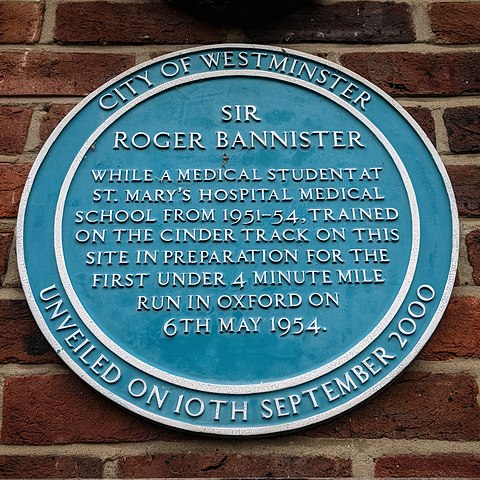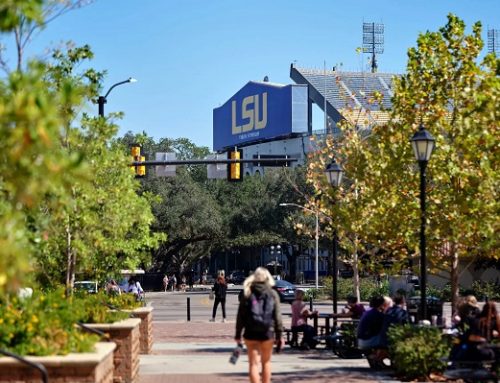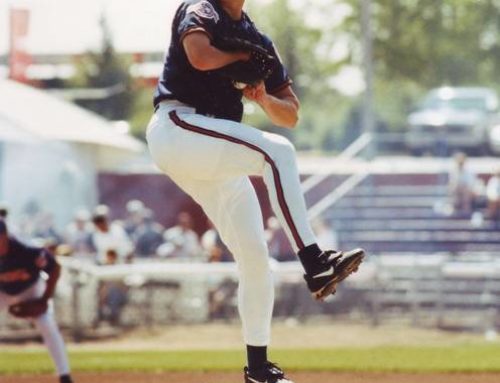On May 6,1954, Sir Roger Bannister, a twenty-five year old medical student, accomplished one of the greatest feats in sports history when he became the first person to run a sub-four minute mile. I have always felt a special identification with that feat because both Roger Bannister and I attended Exeter College, Oxford University and we both ran on the university track on Iffley Road. While I have not seen the track in over thirty years, I can distinctly recall my shock at its primitive condition, clearly not a track geared for “chariots of fire.” In those days, I would run the mile in approximately eight minutes, and felt some pride at my dashes at the finish line. Nevertheless, while completing the mile, I can remember feeling that it must be physically impossible for somebody to run this same course in twice my speed!
While records in track are made to be broken, Roger Banister’s accomplishment 3:59.4 remains timeless, possibly the greatest running moment of the twentieth century. In reading Roger Bannister’s account of his training for this event, I believe that almost his entire training regimen was a personal exercise. Until Mr. Banister’s accomplishment many felt that the feat was physically impossible and pursuing this goal was medially harmful.
The run was remarkable considering he was running in a 15 mph crosswind that gusted to 25 mph. Bannister was not running against anyone, only against the clock. A pair of “rabbits,” fellow Oxonian Chris Chataway and former Cambridge University steeplechaser Chris Brasher paced him.
Several years after completing the race, Banister tried to reconstruct the race. To the extent he could replicate his thoughts, it is fun sharing this experience with him.
First of all, he was most upset by the initial false start. He was angry because the race would not be counted if the wind rose above the current levels. He feared that the lull in the winds was temporary.
Banister was then concerned during the first quarter that the pace was too slow. Subsequently, Banister mentioned “Chris Brasher made success possible by keeping to a 57.5 second pace for the first quarter”.
Banister could barely remember the half-mile, passed in 1 minute 58 seconds, or the three quarter mile mark of 3 minute .7 seconds. He felt that he was running well and the cheers of the crowd of some 1000 people standing along the track motivated him. (When I ran on the track, there were no grandstands.)
With three hundred yards to go, Banister realized the moment in his lifetime had come. He felt not pain, only a great unity of movement and aim. The world did not exist for him at that point. The only reality was the “final yards under his feet”. At this point he felt impelled by a combination of fear and pride.
With fifty yards to go, Bannister stated, “ my body had long since exhausted all its energy, but it went on running just the same. This was the crucial moment when my legs were strong enough to carry me over the last few yards, as they could never have done in previous years. With five yards to go the tape seemed almost to recede. Would I ever reach it?”
“Those last few seconds seemed never-ending. The faint line of the finishing tapes stood ahead as a haven of peace after the struggle. I lept at the tape like a man taking his last spring to save himself from the chasm that threatens to engulf him.”
After the race, Banister collapsed. He knew that he had succeeded even before the official announcement. His muscles seemed to have failed him, and his limbs seemed to be caught in an ever tightening vice.
The actual announcement went as follows: “Ladies and gentlemen, here is the result of event 9, the one-mile: 1st R.G. Bannister, Amateur Athletic Association and formerly of Exeter and Merton Colleges, Oxford, with a time which is a new meeting and trace record, and which—subject to ratification—will be a new English Native, British National, All-Comers, European, British Empire and World Record. The time was 3…” The cheers drowned the rest out. Banister embraced Brasher and Chataway, and the trio trotted the victory lap.
Originally published in the Sarasota Herald-Tribune



